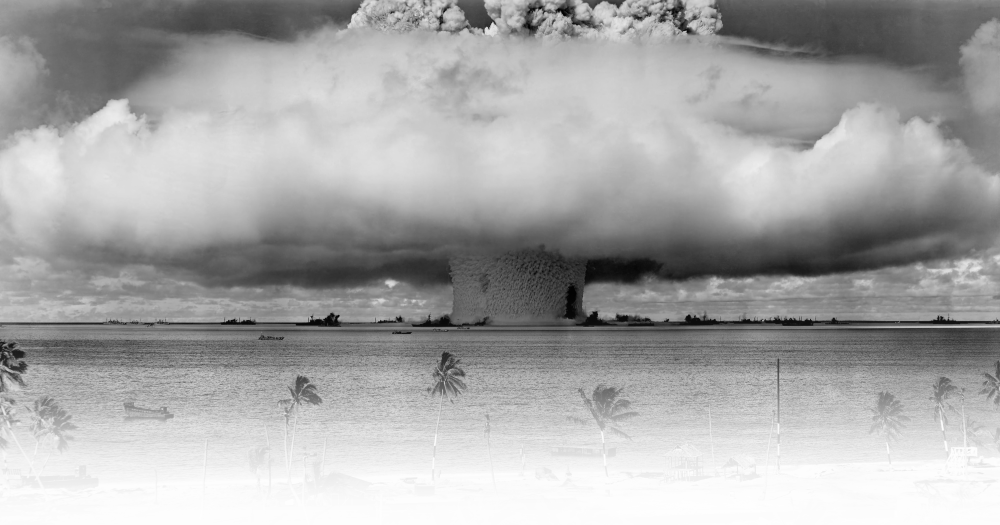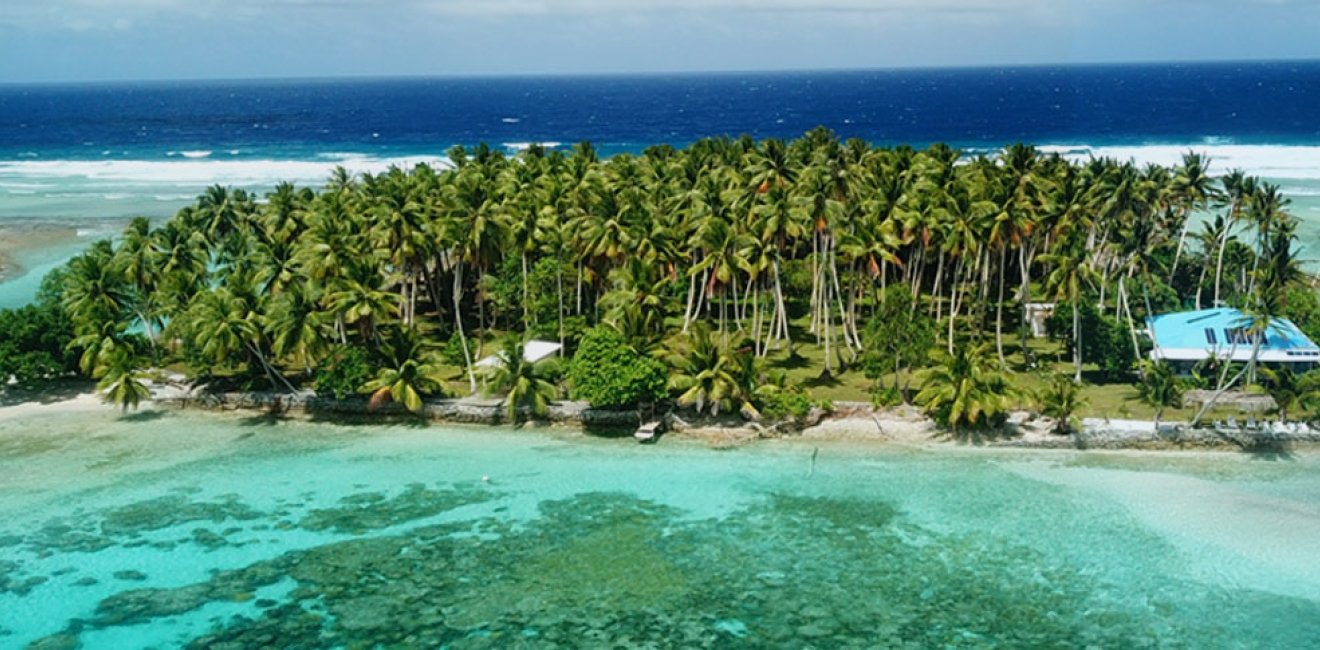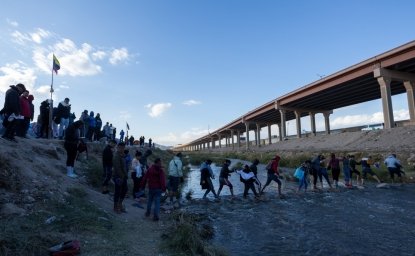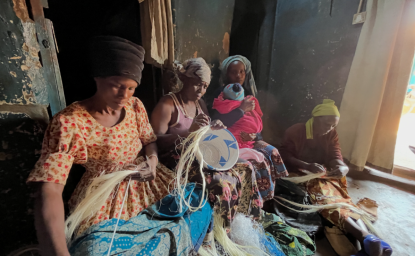Many Marshallese have their own migration story. Our migration story began when we moved from the capital city of Majuro to Hawai’i for work and educational opportunities. These opportunities included working with the nonprofit Pacific Resources for Education and Learning (PREL) while pursuing postgraduate studies (Hilda), and elementary and secondary education in the downtown area of Honolulu (Kathy). For twelve years, life revolved around school, work, family barbeques, and picnics at Ala Moana, and we welcomed a continuous tide of relatives from the Marshalls who came through the Honolulu airport with coolers and suitcases in tow to live with us in our 3-bedroom apartment on Makiki Street.
We always understood that our future was not in the United States. There were no plans to stay permanently—we had moved for a purpose and when we reached our goals, we returned home. Yet the years we lived as a family in Honolulu would set the foundation for understanding the nuanced difficulties of living and migrating as a Marshallese. And as we each entered the realm of climate change work, those experiences have continued to inform and shape the dialogue we pursue at local, national, and international levels.
Our perspective has always been that migration, while a necessary option and important response to climate change, is not meant to be—nor should it be—the only option for our citizens. Forced migration is not the way forward. Our family willingly chose to relocate—and our fellow citizens and future generations must be able to retain that right of choice as well.
The science tells us that climate change impacts will continue to worsen and that we can no longer just focus on mitigation. The Republic of the Marshall Islands (RMI) is currently developing its National Adaptation plan, a strategic plan that considers various responses to climate change, including the elevation of land, internal migration, or even the extreme option of building new islands. At only 2 meters above sea level, we have no higher ground to run to—we must, instead, build that higher ground ourselves.
This is why policies to address climate change must not only continue to support mitigation efforts and create systems that enable a just transition into U.S. communities, but also continue to provide support for adaptation—especially for atoll nations, which are uniquely vulnerable. These policies must include funding mechanisms that enable atoll countries to access funds for adaptation sooner rather than later, resources to enable meaningful dialogues with stakeholders in our communities, and studies for understanding and supporting land reclamation or land elevation.
Our Giant, Distant Neighbor

The issues that the RMI is now planning for and considering do not exist in a vacuum. Our country has a long and complicated history with the United States, the country that most of our citizens have and will likely continue to migrate to as climate impacts worsen.
To properly understand our current and future migration patterns, one must also understand the history of the RMI’s relationship with the United States, starting with the RMI’s transition from a Trust Territory of the U.S. to an independent nation. This change of status took place without the necessary economic preparation and establishment of requisite and proper healthcare and educational systems, and the resulting lack of proper healthcare, substandard education, and limited job opportunities continue to drive out-migration. For example, the RMI has some of the highest diabetes rates in the Pacific, but the hospital system lacks proper dialysis equipment, forcing many Marshallese abroad.
The legacy of nuclear testing conducted by the United States continues to influence migration across the islands and the health of our people. After World War II and before the Compact of Free Association was enacted, the United States tested 67 nuclear weapons on Bikini and Enewetak atolls. Those tests destroyed our islands and ecosystems and had disastrous impacts on the health of our people. Marshallese from these nuclear affected islands were displaced within the Marshall Islands, and are still displaced 70 years later due to high levels of radiation on those islands. Understanding that their islands will never be restored to pre-nuclear testing conditions, many members from those islands in particular have emigrated to seek better lives. For example, a community of Enewetak islanders—the islands that house the Runit nuclear waste known for its cracked dome—currently reside on Big Island in Hawai’i. While our family does not come from the four islands the U.S. deems nuclear-affected, the elders in our family passed away from nuclear-related cancers long ago. No Marshallese citizen, regardless of where they reside in the RMI, is untouched by this legacy.
This nuclear legacy is only one example of the complicated relationship that the Marshallese have with the United States. COVID-19 has also exposed the cracks in the U.S. system, and the many ways vulnerable populations fall through these cracks. Marshallese people in particular have had a higher percentage of deaths in Arkansas, where many are working low-wage jobs with little to no access to the health care that was promised by the Compact of Free Association treaty. We hear from our family members working in the Consulates and as healthcare professionals how they struggle to support Marshallese community members in navigating the complicated systems to gain access to unemployment benefits and health insurance.
This systemic marginalization, combined with the current atmosphere of hostility and outright racism towards immigrants in the United States, puts into stark reality the struggles Marshallese and other Pacific Island people will face as climate impacts drive increased migration. In our work through PREL as well as the time we spent living and growing up in the U.S., we have experienced this discrimination ourselves in our daily interactions with acquaintances and friends, teachers, and in institutional policies such as the eligibility for Medicaid.
A Framework for Mobility
The Compact of Free Association Treaty, a treaty between the Marshall Islands and the United States that first went into effect in 1986, originally extended education and health benefits such as student loans and Medicaid insurance. The Federated States of Micronesia and the Republic of Palau have also signed similar Compact agreements with the United States. The first Compact between the RMI and the U.S. was a fifteen-year treaty that was renewed in 2003 for another fifteen-year period, and is currently up for renewal again in 2023.
Migration out of the RMI increased after the Compact went into effect because of visa-free provisions that allowed easy mobility between the RMI and the United States. In 2011, 25 years after the Compact came into force, 22,343 Marshallese were living in the U.S. That number has since risen to an estimated 30,000. This means nearly half of all Marshallese have migrated to the States, with significant numbers in its territory of Guam as well.
While the Compact has enabled easier mobility, there are significant gaps in the agreement that must be addressed in the face of both COVID-19 and climate change. First, the status of Freely Associated States (FAS) residents living in the United States must be made clearer. As it stands, confusion over our status means that some states allow certain critical benefits, like health insurance, while others deny them.
The discontinuation of Section 177 funds—a $150 million Nuclear Claims Fund for the four most affected the RMI atolls—also needs to be addressed. Without the funds, the Nuclear Claims Tribunal is no longer able to operate, despite the fact that numerous land compensation and personal injury claims have gone unresolved. The elders in our family—both of whom had nuclear-related cancers—were awarded personal injury claims by the Nuclear Claims Tribunal, yet they only received half of the payment because the funds ran out. How many other nuclear victims have experienced this?
We are currently in the process of renegotiating the Compact and working to ensure that climate change and its impacts are considered in the talks. The current U.S. administration’s position on the issue, however, will create barriers to that discussion, despite the strategic importance of the Marshall Islands generally, and of Kwajalein missile test site, specifically.
Climate, Health, and Safety
The Compact of Free Association has provided important opportunities for the RMI citizens to access healthcare and education opportunities in the United States. But the gaps in the agreement, paired with the heightened risks posed by climate change and COVID-10 and the current administration’s reluctance to address these risks, signal a need for broader foreign policy initiatives that support the Marshall Islands and other frontline nations and communities. Opportunities lie in the United Nations Framework Convention on Climate Change as well as with the Human Rights Council, where Marshall Islands currently has a seat.
Our country is one of just 5 atoll nations that are severely threatened by climate change. King tides, intrusion of salt water into freshwater resources, and the difficulties of growing food have exacerbated the challenges of the harsh atoll environment. We are also facing increased health challenges as a result of climate change. Scientists have determined that dengue fever and other mosquito-borne illnesses are increasing as climate change worsens, and our country has been experiencing this first hand. From this past October to January 2020, our hospitals and staff were overwhelmed with patients sick with dengue fever.
This experience with dengue, however, helped inform our government’s decision to close down borders early on in an effort to prevent COVID-19 from entering our country. Hospital administrators advised the National Disaster Committee to take swift action, learning from lessons months earlier that our system and staff lacked the capacity to deal with the pandemic sweeping the world.

COVID-19 has exposed the ways in which countries are capable of transitioning to low-carbon means of transportation, but at high costs. Climate change advocates, including representatives from our own country, have long been pushing for these transitions, but through processes that would provide the breathing room needed for systemic change, and without the high economic impacts and death tolls seen from the pandemic.
Ultimately, foreign policies need to provide the proper infrastructure for migrating—infrastructure that affords our citizens the access to essential services like health care that we desperately need. At the same time, policies must also address and support adaptation so that migration is a choice, and those that decide to stay are able to maintain our land, our identity, and our culture.
Living as a Marshallese family in Hawai’i for all those years gave us many opportunities—but it also taught us the many difficulties of living away from our homeland. We want to ensure that all Marshallese families have the choice to migrate, but can also continue to live in our islands for generations to come.
Authors

Environmental Change and Security Program
The Environmental Change and Security Program (ECSP) explores the connections between environmental change, health, and population dynamics and their links to conflict, human insecurity, and foreign policy. Read more







